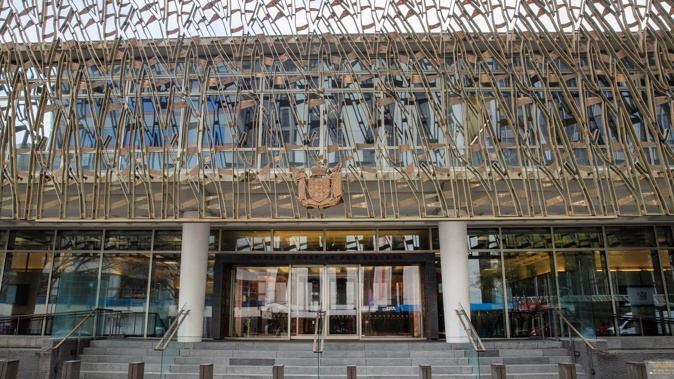
The highest court in Aotearoa New Zealand is mulling whether or not to give a serial sex offender permanent name suppression.
Today’s Supreme Court hearing followed unsuccessful attempts to gain permanent name suppression in the lower courts after the offender was sentenced to home detention and supervision upon pleading guilty to rape, unlawful sexual connection and indecent assault charges last year.
The man’s lawyer, Emma Priest, argued he met the hardship grounds for name suppression and submitted the lower courts had given insufficient weight to youth justice principles.
Ultimately, she said, to give real effect to the United Nations Convention on the rights of the child, there must be a commitment to prioritising their best interests.
She said the only logical conclusion was that a presumption ought to be in favour of suppressing his name.
Priest told the court the combination of his age and his treatment means the offender has a greater chance of rehabilitation, and those who had written reports on him seemed to conclude once he had undertaken programmes to completion his risk of reoffending would be reduced.
“The second point about publicity is linked into employment and [the man’s] unfinished university degree. He doesn’t have a foothold in a career that will allow him to hold a job. He will be in the unfortunate position of being a first-time job seeker once his degree is finished.”
She then referenced the case of convicted rapist Jayden Meyer, who was also sentenced to home detention last year but whose name was not suppressed, and said it could inform the court of the risks her client may face as Mayer was not able to move on “with any speed at all”.
Social media, she said, would mean he would be unable to avoid cruel comments and could be bullied in his own home. She also spoke of the vigilante justice his family had experienced.
Priest also argued the mainstream media portrayal of the man as a “calculating predator” was in her submission unfair as it “minimised” his lowered culpability as a result of his youth and his autism.
In response, one of the judges said it was not the court’s role to tell the media how to do its job.
Priest said the media environment the man’s name would be released into was very “victim-centric”.
“It does turn the public against him.”
On claims his autism affected his ability to read that consent had been withdrawn, Crown lawyer Zannah Johnston said there was no direct evidence from the defendant that he had an honest but unreasonable belief in consent, and while the Crown accepts his diagnosis, one of his victims made repeated pleas for him to stop.
”The victims were using words and physical resistance, that’s a little blunt but it’s the crux of the Crown’s submissions there.”
While Johnston accepted nasty, uninformed comments were made over social media, she said they were rarely acted upon.
The lawyer also submitted people had always said things online, and it didn’t necessarily mean everyone would read them.
She argued there was a stronger public interest in this case given the nature of the offending.
“In being able to say, I’m going on a date with somebody, and his name is such and such and being able to Google his name.”
Johnston disagreed that publication would prevent him from leading a productive life.
She asked the court to bear in mind publication of his name being inconsistent with reoffending.
The court has reserved its decision.
Earlier this year Ellie Oram, one of three survivors who chose to waive their automatic name suppression in order to speak publicly about the attacks, said the decision to hear the appeal hurt the most and had been the “hardest part” of the case.
/cloudfront-ap-southeast-2.images.arcpublishing.com/nzme/YYEWOQ65UVAZFD3HULWJ3M6VGY.jpg)
Ellie Oram.
“The system gives perpetrators way too much power. The fact our court date took two years after the attack to take place was already exhausting but then to have to go through a year after that of fighting to have his name released has been brutal.“
She also has concerns over the offender’s ability to interact with people who do not know his history.
Investigations into the man began after several women made sexual assault complaints to police after offending between 2017 and 2020 when he was aged 14 to 17.
He was charged with offences against five victims and pleaded guilty to all charges.
Sexual harm - Where to get help
If it’s an emergency and you feel that you or someone else is at risk, call 111.
If you’ve ever experienced sexual assault or abuse and need to talk to someone, contact Safe to Talk confidentially, any time 24/7:
Call 0800 044 334• Text 4334• Email [email protected]
For more info or to web chat visit safetotalk.nz
Alternatively, contact your local police station - click here for a list.
If you have been sexually assaulted, remember it’s not your fault.
Take your Radio, Podcasts and Music with you









